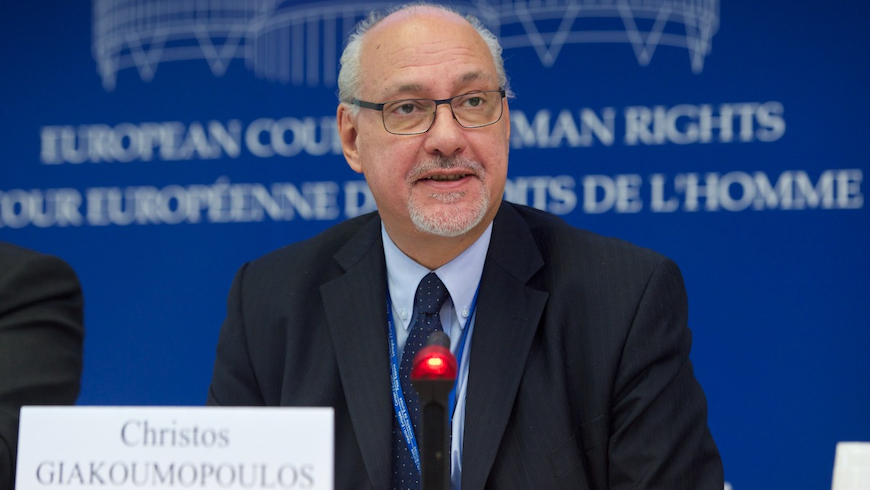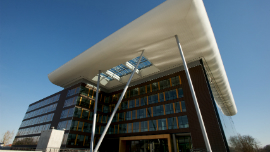Presentation by Mr Philippe Boillat
Free Civil Legal Aid and Assistance for Vulnerable Groups in the Russian Federation
Project Presentation Event - Moscow, 27 April 2016
It is an honour and a real pleasure for me to be here today to present the results of the 1st stage of the Council of Europe project on Free Civil Legal Aid and Assistance for Vulnerable Groups in the Russian Federation.
Before presenting the results of this particular project, I would like to take this opportunity of recalling the fruitful co-operation of the Council of Europe with the Russian Federation in the form of several related projects. Firstly, "Protection of the Rights of Entrepreneurs in the Russian Federation from Corrupt Practices (PRECOP RF)"; secondly «Strengthening the capacity of lawyers and human rights defenders for domestic application of the European Convention on Human Rights and Revised European Social Charter»; thirdly «Human rights education for legal professionals (Programme HELP in Russia)»; fourthly, the Russian PMC Project (“supporting public monitoring of places of detention in the Russian Federation – a project implemented with the Human Rights ombudsman); and fifthly, this Free Legal Aid project. These projects allow the Council of Europe to assist the Russian Federation to strengthen the institutional and legislative framework, build capacity of judicial self-governing bodies and training institutions, strengthen the efficiency of judicial system and courts and ensure equal access to justice for the vulnerable groups.
Free legal aid is essential to the notions of justice and fair trial. Article 6 of the European Convention on Human Rights and Fundamental Freedoms refers specifically to the need for legal aid in the case of a criminal charge and criminal proceedings. The case-law of the Court also shows that in certain circumstances the lack of an appropriate legal aid scheme can lead to a finding of violation of Article 6 in civil and administrative proceedings. Very importantly, the Federal Law on Free Legal Aid goes some considerable way in giving effect to the Council of Europe recommendation of the Committee of Ministers on effective access to justice and the law for the poor (No R (93) 1) which encourages member states to promote legal advice services for the very poor, set up advice centres in underprivileged areas, and extend legal aid to all judicial instances (civil, criminal, commercial, administrative etc.) and to all proceedings, contentious or non-contentious. The Federal law is perhaps more limited in its personal and material scope, but nonetheless the areas of law covered and the numbers of people potentially concerned are significant in these times of financial austerity.
Legal aid is critical in protecting the right to a fair trial. It creates equality of arms. It also creates empowerment, giving ordinary people access to specialised information on the law and on how they can best defend their interests. It ensures that the rule of law is human rights-based, laying the foundation for the equal exercise of the right to justice of every woman, man, and child. It supports the idea of an individual's ability to protect his or her rights in conformity with human right standards – especially in situations of vulnerability. At its simplest, it helps ensure that no economic obstacle alone can prevent fair justice for the disadvantaged. More broadly it promotes citizens' awareness, understanding and better assertion of their rights. By contributing to access to justice for all without discrimination, it has a broad normative impact, and is important to the building up of a democratic society based on the rule of law and human rights.
The objective of the project has been to improve the participation of lawyers in the legal aid scheme at regional level and to remove the many obstacles that hamper take-up by the target groups – women and men on low income, certain senior citizens, people with disabilities or mental illness, persons without legal capacity and their guardians, orphaned children and their guardians, and children in institutional care. National and international experts have worked together on the project, sharing their expertise and good practices. The goal is that publicly-funded legal services and other forms of free legal advice and assistance are targeted more effectively.
We had high hopes for the project and so although we only had partial funding, with the agreement of the Federal Ministry of Justice, we decided to go ahead. In fact, whilst, no further funding has materialised, we have in only one year, completed the 1st stage of the project and through close co-operation with the Federal Ministry and the three pilot regions (Ulyanovsk, Volgograd, Tambov), we are proud to submit to the Federal Ministry a methodological tool that offers practical guidance for the regional authorities on how to better match supply and demand in the field of legal aid, increase the number of legal aid providers and increase the take up of these services by their intended beneficiaries. This tool is the product of Russian and international expertise and tailored to regional needs and conditions within the Russian Federation. It also draws on two other important features of the work that has been done this last year within the framework of the project, namely the strengthening of the dialogue between the Ministry of Justice of the Russian Federation and the regional stakeholders; and a large scale research carried out by the regions supported by the expertise of the Council of Europe to facilitate better identification of the needs of the beneficiaries of free-legal aid service.
The next stages of the project would provide practical support to the three pilot regions in deciding on and implementing good practice solutions to meet the specific challenges in their regions for increasing supply of legal aid services and increasing take-up by the target group - the experience of which would be evaluated and rolled out to all regions. I can confirm the continued readiness of the Council of Europe to support the co-operation and work of the Ministry of Justice and the regions of the Russian Federation, should further funding be made available to complete these next stages of the project. Whether or not this funding materialises, I would strongly encourage the Ministry of Justice of the Russian Federation and the representatives of the pilot regions to maintain the momentum created so far and keep the dialogue open on the development of free civil legal aid system. In any event, the Council of Europe is always ready to work with the Federal Ministry of Justice in improving access to justice and justice sector reform.
I am convinced of the value of this project and its importance in further contributing to the rule of law in the Russian Federation. I must thank his excellency Ambassador of the Grand Duchy of Luxemburg for the generous financial support of his authorities to the project, as well as for his own personal support; and of course the Ministry of Justice of the Russian Federation and the project partners in Ulyanovsk, Volgograd and Tambov for a very fruitful co-operation and their strong commitment to the project.









